HealthManagement, Volume 16 - Issue 4, 2016
The Face of Healthcare
Healthcare is at an exciting yet vulnerable crossroads. Technology is being implemented for everything from diagnosis to workflow solutions and more and more providers and professionals are joining forces in order to deliver the best care possible. With changes coming fast and furious, what do healthcare experts across the spectrum see ahead and how can the changing landscape be navigated for best financial management, happy staff and optimal outcomes? Also, what trends are ahead for patient care and education? HealthManagement.org collected the opinions of our valued Editorial Board members and contributors who gave us their expert views on healthcare in 2017 and beyond.
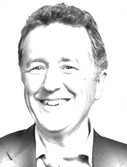
Technology-wise, we'll begin to make better use of the
Internet of Things (sensors; wearables; ambient intelligence) to keep us safe
and make better health choices. We’ll begin to liberate our health and care
data, and put it to work for our benefit; clinicians will rely more on artificial
intelligence and machine learning to make better decisions in the face of
complexity; and anti-stress, mindfulness technologies will be a new area for exploration.
Increasingly, companies and health authorities will be partnering to bring improved healthcare to people and society, but also to enhance our local, national and European economies.
John Crawford
President, EHTEL and Healthcare Industry Leader, Europe/IBM Industry Academy Leader
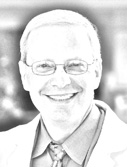
Beyond the impact of the U.S. Presidential Election on healthcare, the other dominant threads are the continuing consolidation of healthcare organisations — including health systems, insurers and more. In 2017, I think everybody will take a deep breath and try to figure out how exactly they're going to manage their new organizations (many with a variety of new partners) to deliver value.
And of course 2017 will take us even closer to nearly complete digitisation of healthcare — we'll be near 100 percent EHR penetration in hospitals, and more than 80 percent in physician offices. We'll make more (incremental) progress on interoperability, and so we'll move toward a more holistic digital experience, in which patient-facing tools (sensors, websites, apps) start to integrate more seamlessly with enterprise EHRs.
Finally, physician burnout will continue to be a major theme, with more effort going into reclaiming joy in practice.
Robert Wachter
Professor and Interim Chair of the Department of Medicine,University of California, San Francisco
See Also: Burnout Syndrome in Critical Care: What Needs to Happen Now?
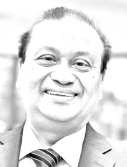
While presenting at several auditing conferences this year, I learned that governance and organisational structure is usually not audited. I think this should be audited because executive qualifications, accountability, and oversight often are the single most determinants of organisational success. We also need to have healthcare organisations run by healthcare executives who are passionate about improving healthcare instead of financial executives who only care about money.
Mansur Hasib
Programme Chair of Cybersecurity Technology, The Graduate School of University of Maryland University College (UMUC) & Cybersecurity and Healthcare Speaker & Author
 The world of healthcare, even focusing only in the European
panorama, can be defined as a universe of hundreds of shades of grey due to
dozens of different regional situations. There are, however, many common problems
and also some similarities in firm goals. One of these is the aim to expand the
use of technology from robotics to eHealth and digital technology. Others
concern the “patientcentred” model of healthcare service delivery and the aim of
changing the nature of the hospital so there are no more silos, but an open
community exchanging ideas. I believe that making steps along this road would
be the greatest achievement of 2017. To do this, we will need to therefore
generate a systemic vision encompassing city, hospitals and health facilities outside
hospitals, as part of the ‘web of care’. Only people with acute problems will
need hospitalisation and ‘light’ health services will provide the support for
self-sufficient elderly and chronic illnesses management.
The world of healthcare, even focusing only in the European
panorama, can be defined as a universe of hundreds of shades of grey due to
dozens of different regional situations. There are, however, many common problems
and also some similarities in firm goals. One of these is the aim to expand the
use of technology from robotics to eHealth and digital technology. Others
concern the “patientcentred” model of healthcare service delivery and the aim of
changing the nature of the hospital so there are no more silos, but an open
community exchanging ideas. I believe that making steps along this road would
be the greatest achievement of 2017. To do this, we will need to therefore
generate a systemic vision encompassing city, hospitals and health facilities outside
hospitals, as part of the ‘web of care’. Only people with acute problems will
need hospitalisation and ‘light’ health services will provide the support for
self-sufficient elderly and chronic illnesses management.Simona Ganassi Agger
Chairman of the Board, European Health Property Network, EuHPN
Healthcare Education Online
Providing healthcare professionals such as nurses with online courses is a cheaper option for the student than attending a bricks-and-mortar educational establishment. For instance, a Doctor of Nursing Practice (DN P) can take on many of the tasks of a higher-paid doctor while being paid considerably less. Distance DN P training is example of education that reflects a growing trend in online medical learning. The number of online graduate schools are rising. This is a market trend to keep an eye on.
Source: wallstreet.com. https://iii.hm/6c4
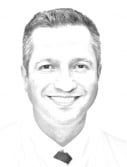
2017 will see a focus on lipid-lowering therapies, improvement of left ventricular assist devices and novel strategies in treating heart failure patients. Also important will be TAVI for the medium-risk patients, interventional mitral-valve implantation and novel anti-diabetic drugs.
Tienush Rassaf
Editor-in-Chief, Cardiology, HealthManagement.org & Department Head and Chair of Cardiology, Westgerman Heart- and Vascular Center
As with finance, supply chain and design, Big Data is helping sort through large amounts of historical clinical data to aid with the identification of past health patterns. This makes conditions and treatment easier to predict. Data analytics and predictive analytics especially will explode in the next few years. Many experts describe Big Data as being in its infancy and as having huge potential when it grows to adulthood.
Source: HFMA. https://iii.hm/6cf
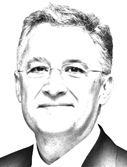
What will be important in 2017 is valuebased imaging: demonstrating the added value of imaging, developing imaging-centred patient management and transforming it into measurable metrics, artificial intelligence, deep learning, computer cognition, clinical decision support for the referring physicians and radiologists and CAD implementation.
Lluís Donoso
Editor-in-Chief, Imaging, HealthManagement.org; Head of Diagnostic Imaging - Hospital Clínic of Barcelona, University of Barcelona; Past President, European Society of Radiology
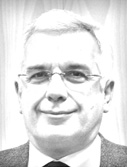
When I think of key developments for healthcare, some of them appear to me to be expected; advances on genome tests, gene editing techniques, artificial Intelligence, smart sensors… and many more. But my main thoughts and concerns come from our current situation. What I mean is there is a framework lack when we pay attention to social (increased inequalities), political (the populism menace), cultural (absence of values) and low economic growth for the current environment and for future perspectives. How are innovators going to develop their projects beyond ingenious apps? How are these innovations going to be led and supported? There are hard times ahead for organizational change that will need strong leaders. Big industrial companies are planning strategies to overcome the situation, but the public / private healthcare systems – immature industries in my view - are they going to be capable?
Josep Picas
President - European Association of Healthcare IT Managers
In coming years, the healthcare team will differ greatly compared to today. Some of the reasons for this include the movement to population health, prevention and wellness and localised and personalised care. Cheaper approaches to treatment will also play a part. One thing is for sure: the changes will call for a new spectrum of professionals beyond the traditional nurse and doctor.
Source: HFMA. https://iii.hm/6cf














